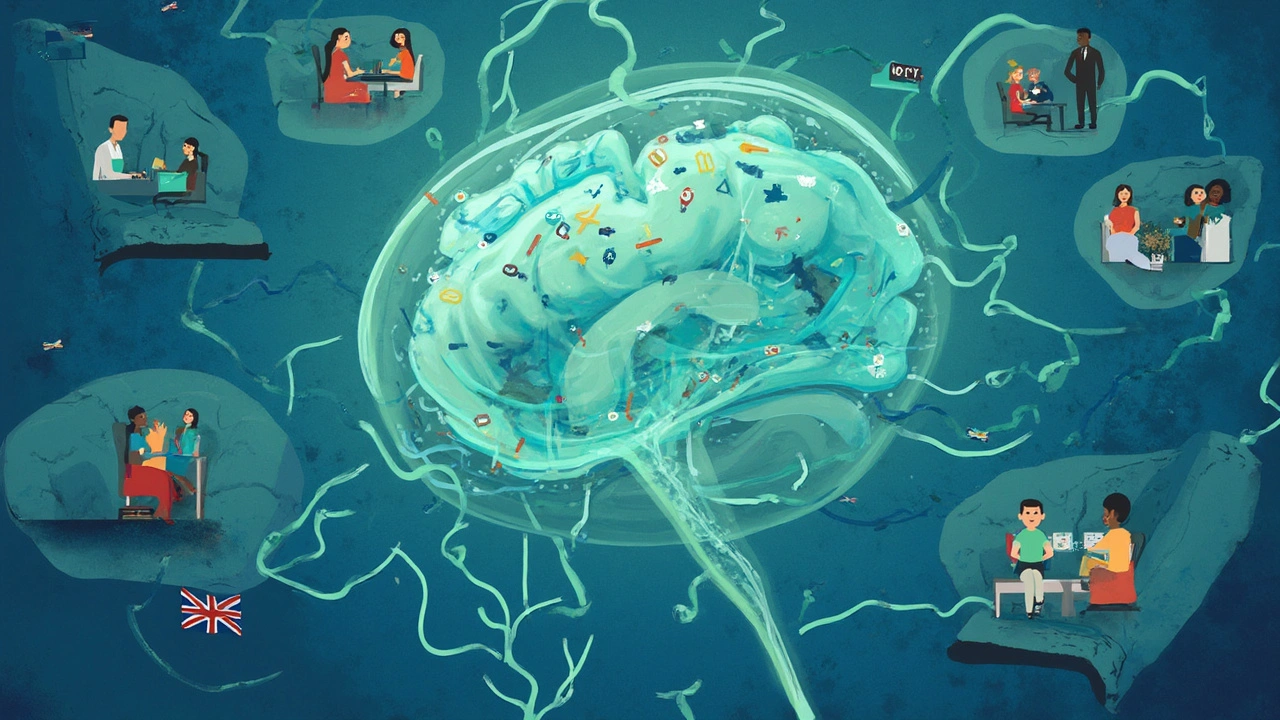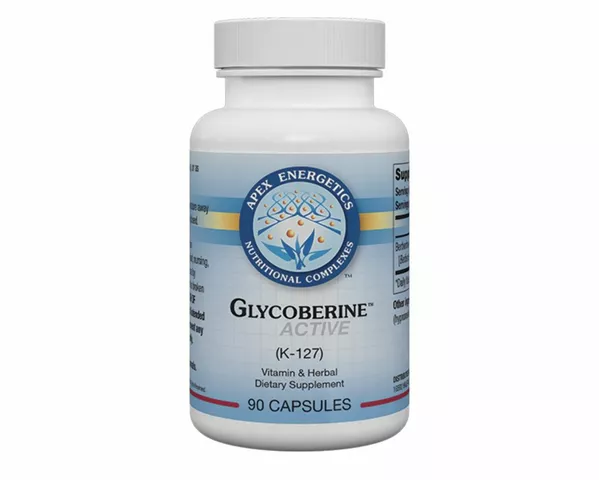Imagine trying to think clearly but feeling like your thoughts are tangled spaghetti. That’s what it’s like for someone battling schizophrenia or severe bipolar disorder. Enter Risperdal—a medication that can cut through that mental noise. But what really makes Risperdal different from the rest of the psychiatric meds out there? Even folks who don’t struggle with these specific diagnoses end up curious because Risperdal tends to show up in some controversial headlines and legal cases. Let’s break down what this drug really does, its perks, its pitfalls, and some facts you won’t get from a simple Google search.
How Risperdal Works in the Brain
Risperdal, known generically as risperidone, is part of a group called atypical antipsychotics. It balances chemicals in the brain, especially dopamine and serotonin. If you've ever watched someone who seemed out of touch with reality, you’ve seen part of what this drug aims to fix. People struggling with hallucinations, delusions, or uncontrolled mood swings need help dialing down that noise. Unlike older antipsychotics, Risperdal does this with less risk of movement-related side effects. That’s a big deal—nobody wants to swap psychosis for a constant shake or muscle stiffness.
Doctors usually reach for Risperdal when treating schizophrenia in adults and teens 13 and up. It’s also on the list for treating bipolar disorder in patients 10 and older, and the FDA gave it the green light for reducing irritability in kids with autism between ages 5 and 16. That’s not to say only those groups use it; off-label uses like treating severe aggression in dementia patients or even certain anxiety conditions pop up, although these aren’t officially approved.
If your brain feels like a mess of wires during a breakdown, you might notice improvement with Risperdal as early as a week, though full benefits can take several weeks. The medication blocks certain brain receptors—especially for dopamine, which can run wild in people with psychotic disorders. Less chaos in the dopamine department usually means fewer scary or confusing thoughts.
But there’s a twist. Like all brain meds, Risperdal isn’t a magic bullet. The brain is still a mystery in a lot of ways, so doctors keep a close eye on patients, adjusting doses and checking for weird reactions. A psychiatrist from Johns Hopkins put it well:
“Risperdal allows us to reduce symptoms without the trade-off of so many older meds, but it’s never a one-med-fixes-all situation,”she said.
The Real Benefits—and When Risperdal Shines
Let’s get clear on something: the biggest win with Risperdal is how it takes the edge off hallucinations, paranoia, and severe mood swings. It can be life-changing for people teetering at the edge of reality. Take someone with untreated schizophrenia—they might stop eating, stop caring for themselves, and lose touch with friends and family. Risperdal can reconnect them to the world. That's huge.
It can also work wonders for young people with autism who have aggressive outbursts or self-injury. A parent I once talked to described her son’s transformation after starting Risperdal: He went from daily, violent meltdowns to being able to sit in a classroom and learn. This is freedom for families trapped by constant crises.
Bipolar disorder isn’t just about mood swings; mania can mean spending sprees, risky behaviors, and sleepless nights. Risperdal helps rein in those manic episodes. For some, it also lessens depression, though not as reliably as it helps with mania. Recent studies also suggest Risperdal might help people who are resistant to traditional antidepressants, though this is something you'd want to hash out carefully with your doctor.
One tip: Patience is key with Risperdal. It can take up to eight weeks for the full effect, so don’t give up if things don’t feel better right away. Dosing is also a bit of an art. Doctors often start with a low dose to avoid side effects, then slowly adjust. If you’re on this medication, write down how you feel each day. Track your sleep, appetite, mood, and even weird body sensations. This log gives your doctor real-life data to make smarter choices for you.

Risks You Shouldn’t Ignore
Let’s not sugarcoat it: Risperdal has some downsides. The most talked about side effect, especially in guys, is gynecomastia—breast enlargement. It sounds rare, but lawsuits over this have cost the company billions. For some teens, this side effect can be devastating—leading to embarrassment and even surgery. Weight gain is another biggie. People on Risperdal can see the number on the scale jump pretty fast, along with a risk of high cholesterol and changes in blood sugar. This means keeping tabs on your diet, getting regular blood tests, and maybe more exercise than you’re used to.
Then there’s drowsiness, which is common enough that you might start planning naps during the day. It can also mess with body temperature regulation, so overheating in the summer or struggling in freezing temps is something to talk about. For older adults, especially those with dementia, Risperdal brings an extra risk: an increased chance of stroke and even death when used off-label. That’s why most guidelines advise against it in this group.
There are smaller, but still notable, effects like increased saliva, muscle stiffness, or feeling shaky. Rarely, you might hear about tardive dyskinesia—uncontrollable facial or body movements that don’t always go away when you stop the drug. A few people experience something called neuroleptic malignant syndrome, a life-threatening reaction. If you or someone you know on Risperdal suddenly develops a high fever, stiff muscles, strange heartbeat, or confusion, that’s an emergency—get to the ER.
One key thing: You need to work with your doctor to balance benefit and risk. Simple step? Keep regular lab checks—lipids, blood sugar, and weight charting. If you gain more than 5% of your body weight in a month, flag it.
Tips for Safe and Smart Use
Managing Risperdal safely comes down to routine, honest conversations with your provider. Never suddenly stop the drug—withdrawal can throw your mind and body into total chaos. If you miss a dose, don’t double up. Just take the next dose as scheduled and talk to your doctor if it happens often.
- Set alarms on your phone or use a pillbox to avoid missing doses.
- Track any changes in sleep, appetite, energy, or mood. Sometimes it’s not easy to notice gradual changes, but someone you trust—a friend, spouse, or therapist—might see things you miss.
- If you notice breast changes, sudden weight gain, or longer-lasting muscle movements, tell your doctor quickly. Don’t tough it out, thinking it will just go away.
- Ask about regular checks—blood work every few months is smart practice.
- Don’t mix Risperdal with alcohol or recreational drugs. Both can increase sedation, drop your blood pressure, and mess with how the medication works.
- If you’re pregnant or breastfeeding, mention it early. While some people take Risperdal during pregnancy, it’s always a risk-benefit calculation.
- Combine the meds with healthy habits: regular light exercise, staying well hydrated, and balanced eating help cushion those tough side effects.
If you’re a parent giving Risperdal to a child, pay close attention to mood swings or sleep problems. Make sure teachers and other caregivers know about the medication in case side effects pop up at school or during social activities. Sometimes, school counselors can even help track changes so your doctor gets the full picture.

Stories from Real People and Ongoing Debates
The thing about Risperdal is it shows up again and again in both miracle stories and horror stories. There’s a dad in my neighborhood whose son got much calmer after starting Risperdal, finally able to join the soccer team. On the flip side, a buddy from college put on thirty pounds in just a few months and had to switch meds. You’ll find support groups online where people compare notes, share tips for fighting off weight gain (a lot of folks swear by meal prepping and calorie tracking apps), and debate whether the trade-offs are really worth it.
Doctors, too, can’t always agree. Some see Risperdal as the gold standard for tough cases, while others worry about side effects piling up over years. Researchers at big hospitals keep looking for ways to make the drug safer or to figure out which patients will actually benefit without the nasty side effects. The legal system’s tangled with Risperdal lawsuits, mostly due to how aggressively it was marketed for uses beyond FDA approval and those unwanted effects in young men.
Pharmacies in the US report tens of millions of prescriptions for Risperdal and its generic each year. Why? Because for the right person, it’s a true game-changer. The trick is working closely with an experienced provider who knows how to spot red flags and tailor the treatment to you. And if you’re curious about stopping the drug, plan a slow taper—quit too quickly, and you’re asking for withdrawal or a full-blown relapse.
Bottom line: This is a med that comes with big ups and big risks. Listen to your body, keep your doctor in the loop, and don’t settle for feeling “just okay.” If Risperdal isn’t working for you, or if the side effects are too tough to manage, there are always other options. Your brain deserves the best care. And if you want real answers, skip the random forums—get the facts straight from your doctor or a trustworthy medical site. Because mental health just isn’t something to gamble on.







joe balak
June 16, 2025 AT 09:55Risperdal works, period.
Reginald Maarten
June 17, 2025 AT 06:39Actually, the claim that Risperdal has ‘less risk of movement-related side effects’ is misleading. Extrapyramidal symptoms are less frequent, yes-but not absent. And the data from the CATIE trial shows it’s statistically indistinguishable from haloperidol in long-term motor toxicity when dosed appropriately. You’re selling a half-truth wrapped in emotional language.
Also, ‘tangled spaghetti thoughts’? That’s not clinical. That’s clickbait. Schizophrenia isn’t poetic-it’s neurochemical dysregulation. Stop anthropomorphizing psychosis.
And don’t get me started on the autism approval. The FDA’s 2006 indication was based on a 6-week trial with 101 kids. Where’s the 5-year safety data? You think parents are told that?
Jonathan Debo
June 18, 2025 AT 10:43Reginald-your ‘half-truth’ comment is itself a half-truth. You cite CATIE, but neglect to mention that Risperdal’s lower EPS incidence was precisely why it became first-line in 2003, despite cost. And the ‘poetic’ critique? You’re conflating accessibility with inaccuracy. The metaphor is pedagogical, not diagnostic. Your pedantry is the real pathology here.
Moreover, the gynecomastia lawsuits weren’t ‘just’ about marketing-they were about the company suppressing data on prolactin elevation for years. The FDA didn’t mandate monthly prolactin checks until 2014. That’s not negligence-it’s corporate malfeasance.
And as for autism: the trials were short, yes-but so were the trials for SSRIs in pediatric depression. You don’t reject a tool because the data is imperfect-you use it with vigilance. Which, incidentally, the article already advised.
Robin Annison
June 19, 2025 AT 21:09It’s interesting how we all project our own fears onto these drugs. I’ve seen people on Risperdal come alive-really alive-for the first time in years. But I’ve also seen the weight gain, the emotional blunting, the quiet despair in teenagers who look in the mirror and don’t recognize themselves.
Maybe the real issue isn’t the drug, but the system that gives it to people without adequate support. Therapy, nutrition, housing, community-these are the things that make medication bearable. We treat the brain like a broken machine, but it’s more like a garden. You can’t just spray chemicals and expect beauty.
I don’t know if Risperdal is ‘good’ or ‘bad.’ I just know it’s a tool-and like any tool, its morality depends on who’s holding it, and why.
Abigail Jubb
June 20, 2025 AT 18:12Oh, so now we’re supposed to feel sorry for Big Pharma? The same company that pushed Risperdal for dementia patients-patients who died from strokes-while telling doctors it was ‘safe and effective’? Please.
I have a cousin who was prescribed this at 14. He gained 70 pounds in 8 months. His face swelled. His voice cracked. He cried every night because he looked like a girl. And when his mom complained? The psychiatrist said, ‘It’s just temporary.’
Temporary? He had a double mastectomy at 19. That’s not a side effect. That’s a tragedy wrapped in a prescription.
And don’t tell me about ‘dosing art.’ Art? No. It’s negligence. And you’re all just nodding along like it’s normal.
George Clark-Roden
June 21, 2025 AT 05:17I’ve sat with people who’ve been on Risperdal for 15 years. Some of them are alive today because of it. Others? They’re ghosts-slower, heavier, quieter, hollowed out by the very thing that saved them.
There’s no moral victory here. No clean win. Just this terrible, quiet balancing act: the terror of psychosis versus the slow erosion of self.
I remember one woman-72, widowed, paranoid for decades-started on Risperdal after her husband died. She stopped hearing his voice in the walls. But she also stopped laughing. She stopped recognizing her grandchildren. She said, ‘I’m not crazy anymore… but I’m not me either.’
That’s the cost. That’s the price. And nobody talks about it. We just say ‘it works’ and move on.
Maybe the real question isn’t whether Risperdal helps-but whether we’re willing to pay what it costs.
Hope NewYork
June 21, 2025 AT 14:43lol so ritalin for crazy people? they just want to drug everyone up so they dont ask questions. also why is it approved for kids? who approved this? the same people who let aspartame in? i bet the fda is owned by j&j. also gynecomastia?? sounds like a cult thing. i know a guy who took it and now he’s got boobs and cries every day. also why is it in schools? they’re drugging the kids to make them quiet. wake up sheeple.
Melissa Delong
June 22, 2025 AT 23:21There is no such thing as schizophrenia. It is a manufactured diagnosis to control dissenting minds. Risperdal is a chemical restraint used by institutions to silence people who do not conform. The dopamine theory is a myth. The brain does not have ‘chemicals’ that can be ‘balanced.’ That is pharmaceutical fairy tale language.
The FDA approved Risperdal for autism because they were bribed. The lawsuits are proof. The weight gain? That’s not a side effect-it’s a feature. It makes people dependent. Fat people are easier to control.
And don’t tell me about ‘treatment.’ This is chemical imprisonment. The real cure is freedom. Not pills.
Marshall Washick
June 24, 2025 AT 12:46I’ve been on Risperdal for 11 years. I don’t hear voices anymore. I can hold a job. I have friends. But I also have type 2 diabetes, high triglycerides, and I’m 40 pounds heavier than I was in 2013.
I don’t hate the drug. I hate that I had to choose between madness and metabolic ruin.
My doctor says I’m ‘stable.’ But stable isn’t the same as well. I don’t cry at movies anymore. I don’t feel the wind. I don’t get excited about anything. I just… exist.
I wish there was another way. But I’m too scared to try.
Abha Nakra
June 26, 2025 AT 06:20As someone from India who works in mental health outreach, I’ve seen Risperdal change lives-especially in places where therapy is a luxury. In rural villages, a $5/month generic can mean the difference between a child being locked away or going to school.
Yes, the side effects are real. But so is the suffering of untreated psychosis. We don’t have the luxury of perfect options here.
What we need isn’t to demonize the drug, but to demand better access to monitoring: free blood tests, nutrition programs, and trained community workers who can track weight and mood changes. The drug isn’t the villain-the lack of support is.
Let’s fix the system, not just the prescription.
Neal Burton
June 27, 2025 AT 21:03They never tell you that Risperdal induces anhedonia. Not just weight gain. Not just gynecomastia. The real horror is the numbness. The emotional flatline. The loss of desire-to love, to create, to feel anything deeply.
I was a painter before Risperdal. Now I stare at blank canvases and wonder why I don’t care.
They call it ‘stability.’ I call it quiet death.
And the worst part? No one wants to hear it. Everyone’s too busy praising the ‘miracle drug’ to notice the soul it’s swallowing.
Tamara Kayali Browne
June 29, 2025 AT 16:24The article is riddled with emotional manipulation. Phrases like ‘tangled spaghetti thoughts’ and ‘reconnect them to the world’ are not evidence-based. They are narrative devices designed to obscure the lack of longitudinal data on cognitive decline associated with long-term atypical antipsychotic use.
The FDA’s approval for pediatric autism was based on a single industry-funded trial with a 30% placebo response rate. The effect size for irritability was clinically insignificant.
Furthermore, the claim that ‘Risperdal allows us to reduce symptoms without the trade-off of so many older meds’ is empirically false. Meta-analyses show comparable rates of metabolic syndrome and tardive dyskinesia over 10-year periods.
Recommendations for ‘daily logs’ and ‘regular labs’ are insufficient. They are performative compliance measures that absolve the system of responsibility.
Nishigandha Kanurkar
June 30, 2025 AT 05:59They’re putting it in the water. You think the weight gain is accidental? It’s to keep you docile. The government, the pharma giants, the psychiatrists-they all work together. Risperdal is a mind-control drug. The gynecomastia? That’s to humiliate young men so they don’t rebel. The drowsiness? So you don’t notice the cameras. The FDA? A front. The lawsuits? Paid off. You think this is medicine? It’s psychological warfare.
Lori Johnson
July 1, 2025 AT 06:57Okay but I just want to say-my cousin was on this for 2 years and she lost 50 lbs and got her life back? Like she started painting again and got engaged?? So it’s not all bad?? Like, I get the side effects are scary, but it’s not a one-size-fits-all nightmare??
Also, I think people forget that mental illness is invisible until it’s not. And sometimes, the only thing standing between someone and the street is a pill.
Maybe the answer isn’t ‘ban it’-it’s ‘help people use it better.’
Tatiana Mathis
July 2, 2025 AT 14:35There’s a quiet dignity in how the article acknowledges both sides-no sugarcoating, no demonizing. That’s rare in mental health discourse.
I work in a community clinic, and I’ve watched parents cry because their child finally slept through the night after starting Risperdal. I’ve also watched teens sit in silence, staring at their chests in the mirror, asking why this happened to them.
The truth is, medicine doesn’t always give us clean choices. Sometimes it gives us the least-bad option.
What matters isn’t whether the drug is perfect-it’s whether we’re giving people the tools, the support, and the dignity to live with its consequences.
That’s what the article got right. Not the science-though it’s accurate-but the humanity.
We need more of this. Not more outrage. Not more praise. Just more honest, quiet, patient care.
Michelle Lyons
July 2, 2025 AT 19:49Why is Risperdal so widely prescribed? Because it’s profitable. The FDA is a puppet. The doctors are paid by pharma. The ‘studies’ are funded by J&J. The ‘benefits’ are inflated. The ‘side effects’ are buried. The lawsuits? They’re settlements, not justice. You think this is medicine? It’s a corporate profit machine disguised as science.
They’re drugging the homeless. The prisoners. The kids. The elderly. All to save money on care. Risperdal keeps people quiet. That’s not treatment. That’s containment.
And you’re all just reading this and nodding like it’s normal. Wake up.
Cornelle Camberos
July 3, 2025 AT 03:06It is an undeniable fact that the pharmaceutical industry has engaged in unethical marketing practices with regard to Risperdal, particularly in the off-label promotion of the drug for geriatric dementia patients, which resulted in a $1.2 billion fine by the United States Department of Justice in 2012.
Furthermore, the elevation of prolactin levels is a well-documented pharmacological effect, and the incidence of gynecomastia in adolescent males exceeds 15% in some cohorts, which constitutes a serious adverse event that should preclude first-line use in this population.
It is therefore not merely a question of benefit versus risk, but of ethical obligation. Prescribing Risperdal without full disclosure of these risks is a breach of medical ethics.
Iván Maceda
July 4, 2025 AT 09:45🇺🇸 America turns pain into pills. We don’t fix systems-we drug people. Risperdal isn’t medicine. It’s a Band-Aid on a bullet wound. 🤕💊
But hey, at least the kids are quiet in class. 🙃
Jonathan Debo
July 4, 2025 AT 12:33Abigail, your cousin’s story is horrific-and it should be. But it’s not evidence that Risperdal is evil. It’s evidence that we failed him. We didn’t monitor prolactin. We didn’t offer anti-androgens. We didn’t refer him to a plastic surgeon early. We didn’t give his family counseling.
Blaming the drug is easier than blaming the system that let him fall through every crack.
Would you rather he stayed psychotic? Or would you rather we fix the care around the drug so no one else has to lose their body to it?
Neal Burton
July 6, 2025 AT 02:40Jonathan-you’re right. The system failed him. But the drug enabled the failure. It gave doctors an easy out: ‘Just add Risperdal.’ No therapy. No housing. No job support. Just pills.
That’s not medicine. That’s abandonment with a prescription pad.
And yes-I’d rather he stayed psychotic than became a ghost. At least then he’d still feel something.